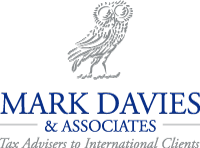The Common Reporting Standard (“CRS”) is a wide-ranging global initiative to share taxpayer financial account information between countries in order to identify and counter tax evasion.
The CRS requires participating countries to obtain taxpayer information from financial institutions in that jurisdiction and pass it on to tax authorities in other jurisdictions (e.g. HMRC) on an annual basis.
At the time of writing 55 countries, including the UK, have committed to exchanging information from 2017, based on information being gathered in 2016.
Unlike the UK’s existing information exchange agreements with Switzerland and the UK’s Crown Dependencies and Overseas Territories, the CRS does not contain a reduced reporting regime for UK resident but non-UK domiciled individuals.
The CRS will greatly reduce the privacy currently enjoyed by these persons as HMRC will receive wider details of their offshore accounts (to the extent the accounts are located in a CRS jurisdiction).
Details reportable under the CRS include the name of the financial institution, the account number, the account balance, the amount of income paid or credited to the account, and the amount of proceeds from the sale of property paid into the account.
The CRS will result in HMRC beginning to obtain a vast new range of data on UK residents with offshore accounts. HMRC have advised a new amnesty known as the Common Reporting Standard Disclosure Facility will open during 2016 for taxpayers who may have undisclosed accounts reported to HMRC under the CRS. Full details of this disclosure facility are yet to be released.
It has been signalled that this facility will not be as favourable as the Liechtenstein Disclosure Facility, but taxpayers who make unprompted disclosure will still be in a much better position than if irregularities are identified by HMRC as a result of an enquiry.
If you are concerned that your foreign income and gains may not have been correctly reported in the past, please contact us.
